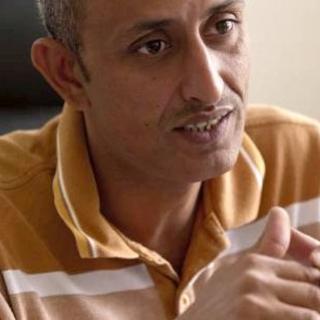Hussein Saleh was born on 17 November 1976 in Yafea, southern Yemen. After attending high school, he found a job as a sales manager in 1994 with All Jaya Eka Cipta, an import/export company connecting retailers with garment factories in Indonesia. He worked there for two years. He then spent 18 months in a similar position with Saleh International, an import/export firm in Bangkok. During his time in the Thai capital, Hussein studied fashion design and took courses in basic and business English. He went on to work for three more importer/exporters between 1998 and 2005: M.W. Company Ltd, in Taipei, Taiwan; Alpha Talent Limited, in Kowloon, Hong Kong; and Eka Cipta Co., Ltd., in Guangzhou, China. He took on increasing responsibilities and enjoyed greater autonomy in each of these roles, rising from the position of sales manager in the first two to general manager in the last one, where he effectively ran the company.
After over a decade in the business world, Hussein was ready for a change. Ever since he was young, he had always placed a high premium on helping others. That, he felt, was worth more than a large salary. He also recognized what really mattered to him: “Being among family, this is what makes a person happy.” His own father died when Hussein was only three months old, and Hussein’s first daughter succumbed to leukaemia when she was eight, after suffering terribly during the final year of her life. Her death was devastating for Hussein, who – unaware of the disease afflicting her – had assured his daughter that she would get better. He was heartbroken that he hadn’t kept his word.
Hussein successfully applied for a job with the ICRC and started work in May 2010 as assistant to the head of the Aden office. Thanks to his local roots and his fluency in both Arabic and English (he also spoke Bahasa Indonesia), Hussein was well-placed to facilitate the ICRC's activities in southern Yemen. In his first year on the job, he was tasked with developing or maintaining a dialogue with the Yemen Red Crescent Society, local political and administrative authorities, tribal leaders, civil society and charitable foundations. His local knowledge made him invaluable in bolstering relations with these various groups, which were key to the ICRC’s humanitarian efforts. Hussein also participated in field trips to assess the needs and living conditions of civilians – including internally displaced people – in conflict-affected areas of southern Yemen.
Hussein was always well-informed thanks to his wide network of contacts, which owed in part to his family’s solid reputation in the area. Colleagues regularly sought him out for his knowledge on security issues and when assessing the political implications of planned ICRC work.
A team player, Hussein was likeable and well-respected. He was a fast-learner and could handle difficult situations on his own. His head of office saw in him the potential to become a general field delegate – and she encouraged him to do further training. Hussein believed deeply in the ICRC’s mission to help those in need, regardless of their affiliations or circumstances. It was thanks in part to Hussein’s efforts that the ICRC was able to visit prisoners held by a regional group affiliated with al-Qaeda – a real breakthrough at the time.
On 20 June 2012 Hussein and three other staff members were on a field trip to assess the humanitarian situation in an area of Abyan that had been severely affected by fighting, when an airstrike hit close to the ICRC team’s vehicle. Hussein was fatally wounded by shrapnel and died close to where his mother – whose safety he’d worried so much about – lived. He was 35 years old.
Softspoken and hardworking, Hussein wasn’t driven by money or outward success. He thought everyone should be treated with respect and be free of needless suffering. And he applied his principles in word and deed. He also believed deeply in the importance of family – he and his wife had four children, and another was on the way at the time of his death. Above all, he recognized the power of direct human contact – and the value of one’s word – when it comes to improving the lives of those around us.
